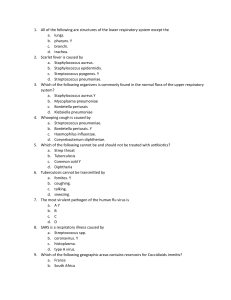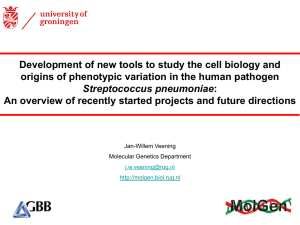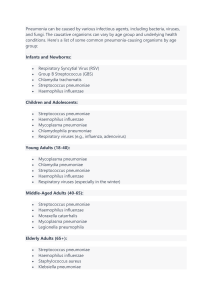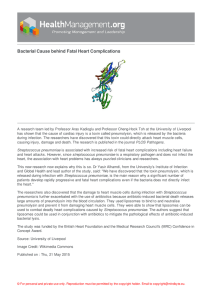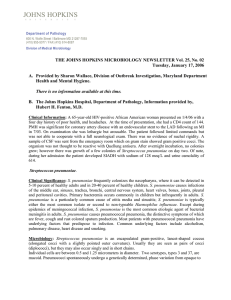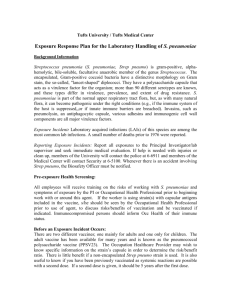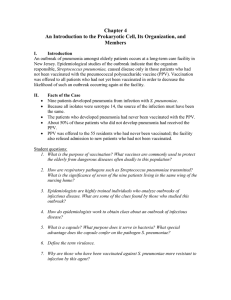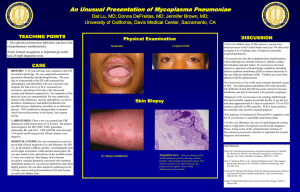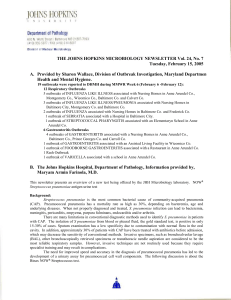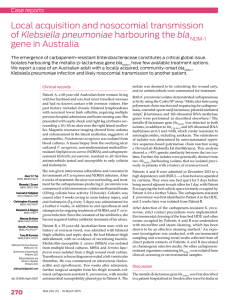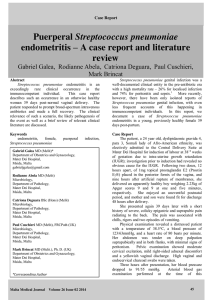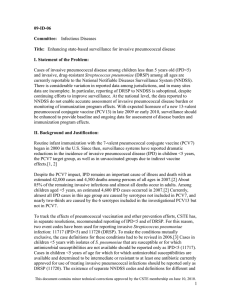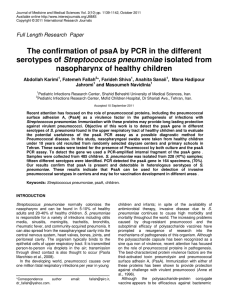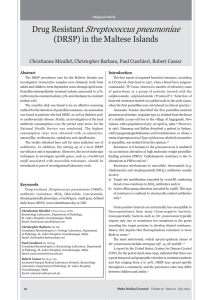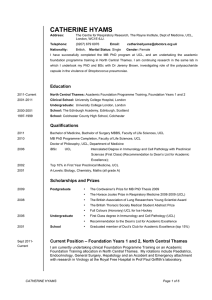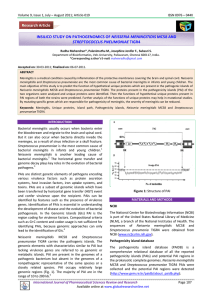UNIVERSITY OF MALTA LIFE SCIENCE RESEARCH SEMINARS Maltese Islands
advertisement
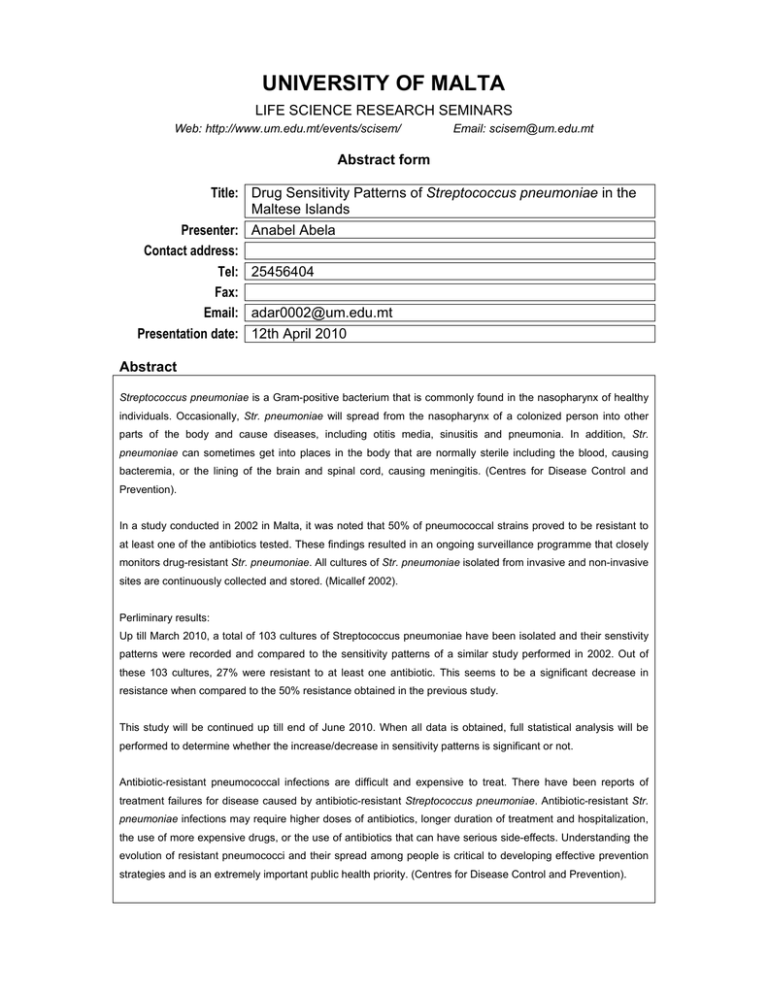
UNIVERSITY OF MALTA LIFE SCIENCE RESEARCH SEMINARS Web: http://www.um.edu.mt/events/scisem/ Email: scisem@um.edu.mt Abstract form Title: Drug Sensitivity Patterns of Streptococcus pneumoniae in the Maltese Islands Presenter: Anabel Abela Contact address: Tel: 25456404 Fax: Email: adar0002@um.edu.mt Presentation date: 12th April 2010 Abstract Streptococcus pneumoniae is a Gram-positive bacterium that is commonly found in the nasopharynx of healthy individuals. Occasionally, Str. pneumoniae will spread from the nasopharynx of a colonized person into other parts of the body and cause diseases, including otitis media, sinusitis and pneumonia. In addition, Str. pneumoniae can sometimes get into places in the body that are normally sterile including the blood, causing bacteremia, or the lining of the brain and spinal cord, causing meningitis. (Centres for Disease Control and Prevention). In a study conducted in 2002 in Malta, it was noted that 50% of pneumococcal strains proved to be resistant to at least one of the antibiotics tested. These findings resulted in an ongoing surveillance programme that closely monitors drug-resistant Str. pneumoniae. All cultures of Str. pneumoniae isolated from invasive and non-invasive sites are continuously collected and stored. (Micallef 2002). Perliminary results: Up till March 2010, a total of 103 cultures of Streptococcus pneumoniae have been isolated and their senstivity patterns were recorded and compared to the sensitivity patterns of a similar study performed in 2002. Out of these 103 cultures, 27% were resistant to at least one antibiotic. This seems to be a significant decrease in resistance when compared to the 50% resistance obtained in the previous study. This study will be continued up till end of June 2010. When all data is obtained, full statistical analysis will be performed to determine whether the increase/decrease in sensitivity patterns is significant or not. Antibiotic-resistant pneumococcal infections are difficult and expensive to treat. There have been reports of treatment failures for disease caused by antibiotic-resistant Streptococcus pneumoniae. Antibiotic-resistant Str. pneumoniae infections may require higher doses of antibiotics, longer duration of treatment and hospitalization, the use of more expensive drugs, or the use of antibiotics that can have serious side-effects. Understanding the evolution of resistant pneumococci and their spread among people is critical to developing effective prevention strategies and is an extremely important public health priority. (Centres for Disease Control and Prevention).
